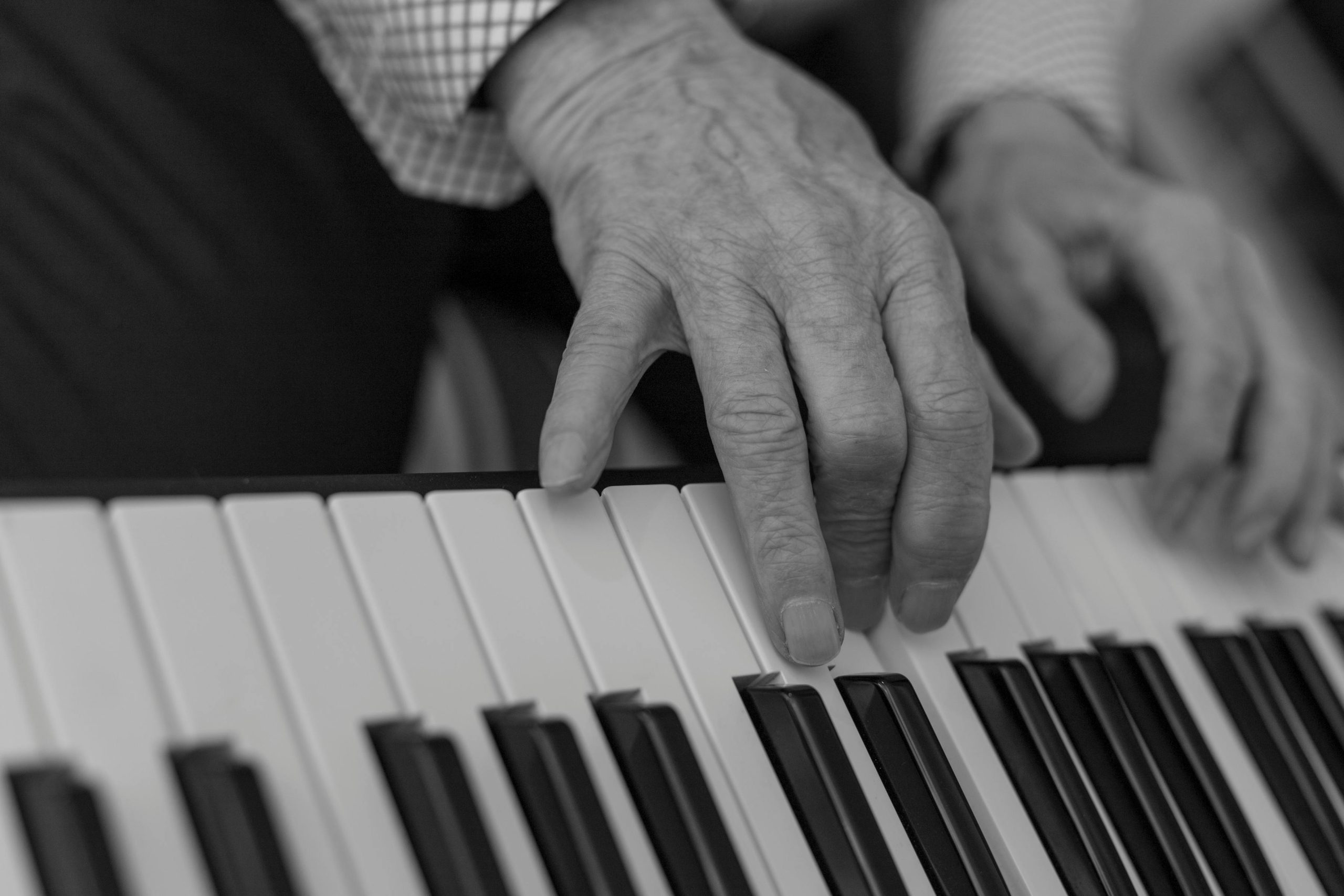Music has the unique ability to transport us through time. A single melody can unlock cherished memories, reduce stress, or even improve physical health. For seniors, music therapy is more than entertainment—it is a powerful tool for mental, emotional, and physical well-being. Whether through singing, playing instruments, or simply listening, music therapy can enhance quality of life in profound ways.
In this blog, we’ll explore the top benefits of music therapy for seniors, real-life applications, and how cultural identity plays a role in healing through sound. We’ll also highlight Dr. Kinnari Birla Bharucha’s course, “Immigrant Paradox: An Exploration of Bicultural Straddling,” which addresses cultural empowerment and community connections, making it a meaningful complement to music therapy.
What is Music Therapy?
Music therapy is a clinical and evidence-based practice that uses music to achieve therapeutic goals. It is guided by trained professionals who tailor sessions to an individual’s needs. Unlike casual listening, music therapy involves intentional activities such as songwriting, rhythm exercises, guided imagery with music, or group singing.
For seniors, this approach can stimulate memory, foster social connection, and reduce symptoms of anxiety or depression—similar to the benefits of individual therapy that provides personalized emotional support and self-expression.
Benefits of Music Therapy for Seniors
1. Memory Support and Dementia Care
Familiar tunes can awaken memory in seniors with Alzheimer’s or dementia. Songs from earlier decades often trigger recognition, sparking conversations and emotional responses that might otherwise remain inaccessible. This is why music therapy is often used alongside self-soothing techniques to help calm anxiety and reconnect individuals with comforting memories.
2. Reduced Stress and Anxiety
Listening to calming music lowers blood pressure, slows the heart rate, and reduces cortisol. For seniors coping with chronic illness or isolation, this emotional release is invaluable.
3. Pain Management
Music has been shown to distract from pain by engaging the brain’s reward system. Seniors undergoing treatments or living with arthritis often report reduced discomfort after music therapy sessions.
4. Improved Social Connection
Group music therapy encourages participation and interaction. Singing in a choir or drumming in a circle strengthens bonds, combats loneliness, and builds a sense of belonging—much like the principles explored in peer support as a healing tool in group therapy.
5. Enhanced Mood and Emotional Expression
Music provides a safe outlet for expressing sadness, grief, or joy. Seniors who may struggle to verbalize feelings often find it easier to express themselves through song or rhythm.
6. Cultural Connection Across Generations
Music is deeply tied to culture. Seniors can reconnect with their heritage through traditional songs, while also sharing this cultural wisdom with younger generations. This intergenerational bridge not only enriches family bonds but also fosters cultural harmony and pride in one’s bicultural identity.
Music Therapy Activities Seniors Can Try
- Personalized Playlists – Curate songs from the senior’s youth to trigger positive memories.
- Sing-Alongs – Encourage group singing of familiar classics to boost mood and energy.
- Rhythm Drumming – Use simple percussion instruments to relieve stress and improve motor coordination.
- Songwriting Journals – Invite seniors to create new lyrics based on life experiences, turning memories into art.
- Cultural Music Sessions – Explore traditional music tied to the senior’s heritage to deepen identity and pride.
The Role of Culture in Music Therapy
Music is not universal in the same way for everyone—it is deeply influenced by culture, tradition, and personal history. For seniors, reconnecting with songs from their culture can be a profound form of healing. It validates their identity, strengthens family bonds, and provides comfort in later stages of life.
This cultural dimension ties beautifully into the work of Dr. Kinnari Birla Bharucha, who explores bicultural identity in her course “Immigrant Paradox: An Exploration of Bicultural Straddling.” Just as music therapy empowers seniors to reconnect with heritage, Dr. Kinnari’s course empowers immigrants and their families to celebrate cultural roots while adapting to new environments.
How Families Can Support Seniors Through Music Therapy
- Encourage daily music time—whether listening to the radio or playing old records.
- Create opportunities for live music, like attending local concerts or church choirs.
- Use music as conversation starters, asking seniors about the songs they loved growing up.
- Integrate cultural music, allowing seniors to share traditions with younger generations.
Music Therapy and Counseling: A Holistic Approach
While music therapy addresses emotional and cognitive needs, counseling provides a structured path for navigating life’s challenges. Seniors and their families can benefit from both. Courses like Immigrant Paradox help families embrace cultural complexity, while music therapy provides day-to-day healing.
Together, they offer a holistic approach to mental health—one that acknowledges both emotional expression and cultural empowerment.
The benefits of music therapy for seniors go far beyond entertainment. From memory stimulation to stress reduction, music is a powerful force for healing, connection, and joy. For seniors navigating cultural identity or families supporting aging parents, music therapy can also deepen ties to heritage and foster intergenerational bonds.
To complement this healing journey, explore Dr. Kinnari Birla Bharucha’s course, “Immigrant Paradox: An Exploration of Bicultural Straddling,” designed to empower individuals to embrace their cultural roots while thriving in today’s diverse world.


